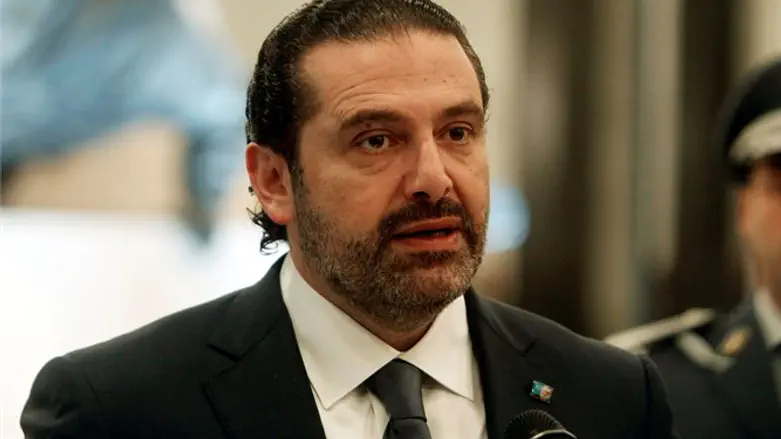
Broad international support for Lebanese Prime Minister Saad Hariri following his speech from Riyadh in which he denounced Hezbollah as an Iranian proxy wreaking havoc in the Middle East, and his subsequent decision to put his resignation on hold once he returned to Beirut to a rock star’s welcome, reinforced the belief that Saudi Arabia had overplayed its hand.
Hariri’s decision has, however, opened the door to backroom negotiations in which Hezbollah, a major Lebanese political force, is finding that it might have to compromise to avoid a political breakdown in Lebanon and secure achievement of its most immediate goals.
Hariri is believed to be demanding that Hezbollah halt its support to Houthi rebels in Yemen and withdraw from Syria, where its fighters supported the regime of President Bashar al-Assad. This would be in line with Lebanese government policy not to become involved in conflicts raging elsewhere in the region.
Hezbollah signaled a willingness to compromise by urging Hariri to withdraw his resignation, calling for calm, advising its supporters not to take to the streets, and announcing that it was withdrawing some of its units from Syria and Iraq, where they supported Shiite militias in their fight against ISIS.
Hariri, who had signaled that he might withdraw his resignation, put it on hold at the request of Lebanese President Michel Aoun, a Christian ally of Hezbollah, who allowed the militia in recent years to outmaneuver the prime minister. Hezbollah also charged that Hariri had not announced his resignation of his own free will but had been forced to do so by Saudi Arabia.
Hariri, who blames Hezbollah for the 2005 assassination of Rafik Hariri, his father and prime minister at the time of his death, agreed to Aoun’s election as president and head of a government dominated by Hezbollah in the false belief that Aoun would ensure that the militia would not endanger Lebanon’s effort to avoid being sucked into the Syrian civil war.
Bruised by his inability to force Hezbollah’s hand, Hariri appears to have reversed his slide in popularity with his threat to resign and enhanced his prospects in the upcoming parliamentary elections.
Hariri’s newfound popularity and leverage, despite Saudi Arabia’s zero-sum approach to its proxy wars with Iran in Lebanon and elsewhere, may enable him to cut a deal that would allow Hezbollah to focus on its all-important goal of securing Lebanese-Syrian relations – at the expense of the Houthis in Yemen.
To be fair, Hezbollah and Iran view the Houthis as an opportunity to complicate life for Saudi Arabia in its own backyard rather than as a strategic priority. Far more crucial is ensuring that Lebanon maintains close ties to the government of Assad. From the point of view of the Saudi kingdom, however, curbing the Houthis – who recently fired a ballistic missile at the international airport in capital Riyadh – is at the top of the agenda.
Hezbollah, Syria, and Iran need Lebanon to have normal, if not close, ties to the Assad government once the guns fall silent given that international and US sanctions against Syria, as well as Assad and his associates, are likely to remain in place. Lebanon has long been Syria’s vehicle to circumvent the sanctions.
That becomes even more important against the backdrop of China’s suggestion that it contribute to post-war Syrian reconstruction. This could see Syria becoming an important node in the Belt and Road initiative, which is designed to enmesh Eurasia in a web of infrastructure, transportation, and telecommunications links that would connect Europe and much of Asia to China.
As has occurred so often in recent years, Saudi Arabia could prove to be its own worst enemy in its effort to curb Iranian influence and win tactical victories in what amounts to a dangerous regional chess game. Saudi players do not always think their moves through.
A wild card in Hariri’s efforts to cut a deal that would weaken Iranian influence in Yemen and force Hezbollah to act more as a Lebanese rather than a regional player, while at the same time allowing it to protect Syrian interests, is staunchly anti-Iranian Gulf Affairs minister Thamer al-Sabhan, a major influence on Crown Prince Muhammad’s regional strategy.
A former military attaché in Lebanon and the kingdom’s first ambassador to Iraq since the 1990 Iraqi invasion of Kuwait, who was asked by the Iraqi government to leave after only nine months in Baghdad, Al-Sabhan has advised Prince Muhammad to adopt an uncompromising approach towards Hezbollah.
According to Associated Press, US officials accused Al-Sabhan during his visit to Washington in November of undermining US policy in Lebanon that involves strengthening the Lebanese armed forces to enable it to match Hezbollah’s military power and supporting Lebanon’s hosting of more than a million Syrian refugees.
Hezbollah leader Hassan Nasrallah acknowledged Al-Sabhan’s influence by denouncing him in a recent speech as a “hairy monkey” and a “man acting like a child.” In response, Al-Sabhan tweeted that “if an incompetent man criticizes me, this is proof that I am a whole man.”
A deal between Hariri and Hezbollah is unlikely to make the likes of Al-Sabhan happy, because it would continue to legitimize the Iranian ally. It could, however, help the kingdom with its ill-fated intervention in Yemen, which has sparked a massive humanitarian crisis and cost Saudi Arabia enormous reputational capital.
Dr. James M. Dorsey, a non-resident Senior Associate at the BESA Center,is a senior fellow at the S. Rajaratnam School of International Studies at Singapore’s Nanyang Technological Universityand co-director of the University of Würzburg’s Institute for Fan Culture.
A BESA Center Perspectives Paper, published through the generosity of the Greg Rosshandler Family.